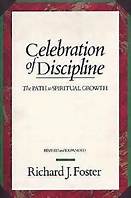Q: Does the Bible teach that God disciplines believers, or, do believers discipline themselves?
A: Yes.
To properly understand the spiritual disciplines, what they are, and what they accomplish, believers must understand what the Bible teaches about God’s goal for us as a disciples of Christ. Perhaps it is too simplistic to speak of one goal that God has in mind, but we can say that a significant aspect of the picture God presents for every Christ-follower is that believer become conformed to the image of Jesus Christ (Romans 8:28-30). In fact, we are told that we were predestined to be so conformed.
This conforming is what we call sanctification — becoming like Jesus, which means becoming holy. Most believers realize early in their spiritual journey that the promise of God to make us like Jesus does not occur immediately at conversion. Instead, it is a lifelong process that involves our participation.
Errors at either end of the discipline spectrum include both passivism (the “Let go and let God” idea that since God is going to do it, anyway, we need not exert any effort) and activism (the idea that the only thing important is our own effort).
Whose responsibility is it to discipline?
Hebrews 12:7-11 tells us that God disciplines us. But 1 Timothy 4:7 tells us that believers should discipline themselves. The words translated “discipline” in those passages are different, which might lead us to conclude that God’s discipline is different from man’s.
But the results of the discipline, in each case, and by each actor, is the same. In Hebrews, the result of God’s discipline of us is that we might share in his holiness and yield the peaceful fruit of righteousness. In Timothy, the result of the believer’s disciplining himself is for the purpose of godliness.
So we see that God is disciplining (training) us and we are disciplining (training) ourselves. What is apparent from the biblical teaching is that those who are truly God’s people in Jesus Christ will be conformed to Jesus’ image — made holy, righteous, and godly — and the only question is how this discipline will occur.
When a believer disciplines himself, he includes those things we call “the spiritual disciplines;” such things as Bible study, prayer, worship and so forth, which we will explore later. Obviously, though, when God disciplines us, he isn’t using those same means that we do. That is, God’s discipline of a believer isn’t accomplished by God’s forcing that believer to study scripture or pray.
How does God discipline?
God’s discipline of the believer for the purpose of conforming him to Christ’s image appears to involve something unpleasant to us. In just a few of the relevant biblical references, we are told that the Lord’s discipline might make us weary (Proverbs 3:11-12), might seem painful rather than pleasant (Hebrews 12:7-11), might threaten our joy (James 1:2-4).
In James’ terms, the tool that God uses to make us perfect and complete, lacking in nothing is testing. And testing, unfortunately, involves trials. In other words, God’s preferred means of disciplining or training his people, a means wielded quite effectively by the Holy Spirit, is suffering, or adversity.
This adversity could be such things as disaster, disease and death, but may also include the faithful rebuke of a friend, a burdened conscience, or church discipline in its various forms.
The believer should be confident, therefore, that the Lord will conform him to the image of Jesus. But even though we know that God is going to discipline us, we should faithfully and zealously engage in the spiritual disciplines, and not be content to wait on adversity (who wants that?).
The believer will either be disciplining himself, or God will be disciplining him. And, in many cases, both.
So, does God discipline us, or do we discipline ourselves? Yes.








